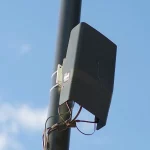ORG Hit by Mass of New Reports for Wrongly Blocked Sites on Mobile Networks
The recent Mobile Internet Censorship Report from the Open Rights Group (ORG), which revealed some of the legitimate websites that often get incorrectly blocked by adult content filters (over-blocking) on UK mobile networks, has triggered a rush of 19 new reports including a major technology news site (GigaOM), a style and fashion magazine, the BNP website (political party) and more.
The issue is currently a hot topic because of a recent Parliamentary Inquiry into Online Child Protection, which called for all fixed line broadband ISPs to enable automatic blocks of pornographic sites (i.e. adult content) by default, although these often make mistakes and block legitimate sites too.
Advertisement
On top of that network operators frequently fail to provide a clear path for appealing unfair blocks, which risks damaging legitimate business and freedom of speech.
Jim Killock, Open Rights Group, said:
“These new reports highlight the breadth of over-blocking happening on mobile networks. The debate often focuses on adult sexual content. But mobile networks are making much bigger judgements about what people under 18 should be able to see, including decisions about political websites. They are making decisions that are best made by parents.
Claire Perry’s suggestion of default adult blocks for broadband ISPs would inevitably lead to a similar range of sites being blocked for adults in the UK. If children are to be protected by default, then why would the protection exclude chat sites, extremist sites, gambling, or alcohol?
Whatever you think about the BNP’s politics, political speech is at the core of the activities protected by freedom of expression rights. So long as they remain within the law, political parties’ websites should never be blocked by ISPs. Schools and families are of course able to install their own blocking software if they want to make this choice.”
Readers wishing to report unfair blocks should visit the Blocked.org.uk site (assuming mobile operators don’t block that too), which allows people to submit reports of any blocks they consider to be inappropriate.
List of Latest 19 Blocking Sites
http://www.glam.co.uk – A magazine of style, fashion and celebrity. Content appears at first glance no racier than many daily newspaper websites. Orange
http://www.thewinesociety.com/ – The wine societies aim is ‘to introduce members to the best of the world’s vineyards at a fair price.’ Vodafone / Orange
http://sexonomics-uk.blogspot.co.uk – This is blocked as pornography on O2
http://forums.selectbutton.net – Video games discussion forum. Blocked on T-Mobile / Vodafone / Orange
http://www.eastdulwichforum.co.uk – A forum for locals of East Dulwich. Blocked on Orange
http://www.28dayslater.co.uk – Discussion forum for people interested in the ‘exploring of abandoned buildings’ Orange / T-Mobile
http://www.bikermatch.co.uk – A site for bikers to arrange meet-ups and dates. Blocked on Orange / T-Mobile
http://www.bnp.org.uk – Blocked on O2 (as a hate site) / T-Mobile / Vodafone / Orange
http://www.manwomanmyth.com – Blocked on Three / Orange
http://www.antimisandry.com – Blocked on O2 (as a ‘hate site’) / Vodafone
http://www.exposingfeminism.wordpress.com – blocked on O2 (as a ‘hate site’) / Vodafone
http://www.angryharry.com – Blocked on Vodafone / O2 (as a hate site)
http://gigaom.com/ – Technology news site. Blocked on Orange
http://www.coadec.com – An advocacy group for technology start-ups. Blocked on Orange
http://lrug.org – A community of ruby developers based in and around London. Blocked on Orange and Vodafone
http://www.yourdailymac.net – An odd block as it’s classified as pornography by O2 yet currently is simply a holding page noting that the domain has been registered. Blocked on O2.
http://dropsafe.crypticide.com/ – A blog about network security. Blocked on Orange
http://www.exploit-db.com/ – A forum for discussion of security vulnerabilities. Blocked on Vodafone / O2 / Orange
http://www.ethicalhacker.net/ – Vodafone / O2 / Orange
Judging by this list, the content of certain newspapers, such as those calling for such blocking to be imposed upon all ISPs by default, could also end up being censored. In reality that wouldn’t happen because it would generate too much negative publicity, although smaller sites are unlikely to have the same level of PR protection.
The Open Rights Group (ORG) are calling on all mobile companies to disclose the numbers of their customers who have taken up an opt-out from blocking, including their estimates of how many adults are stuck behind related censorship systems. The group believes that this is necessary to understand the impact of the “default blocking” policy being considered by the government.
Advertisement
Meanwhile mobile operators contend that mistaken blocks, especially those that can be disabled by the user, do not amount of censorship. It’s a fair point and as an experiment we attempted to disable the block on a Vodafone connection, which proved to be very tricky (the links seemed to go around in circles). In the end we needed a Credit Card number for verification. Needless to say, nobody was too comfortable with the idea of handing their CC details over; clearly room for improvement.
Mark is a professional technology writer, IT consultant and computer engineer from Dorset (England), he also founded ISPreview in 1999 and enjoys analysing the latest telecoms and broadband developments. Find me on X (Twitter), Mastodon, Facebook, BlueSky, Threads.net and Linkedin.
« UK Internet Service Providers Association Reveals 2012 ISP Award Finalists

















































Comments are closed